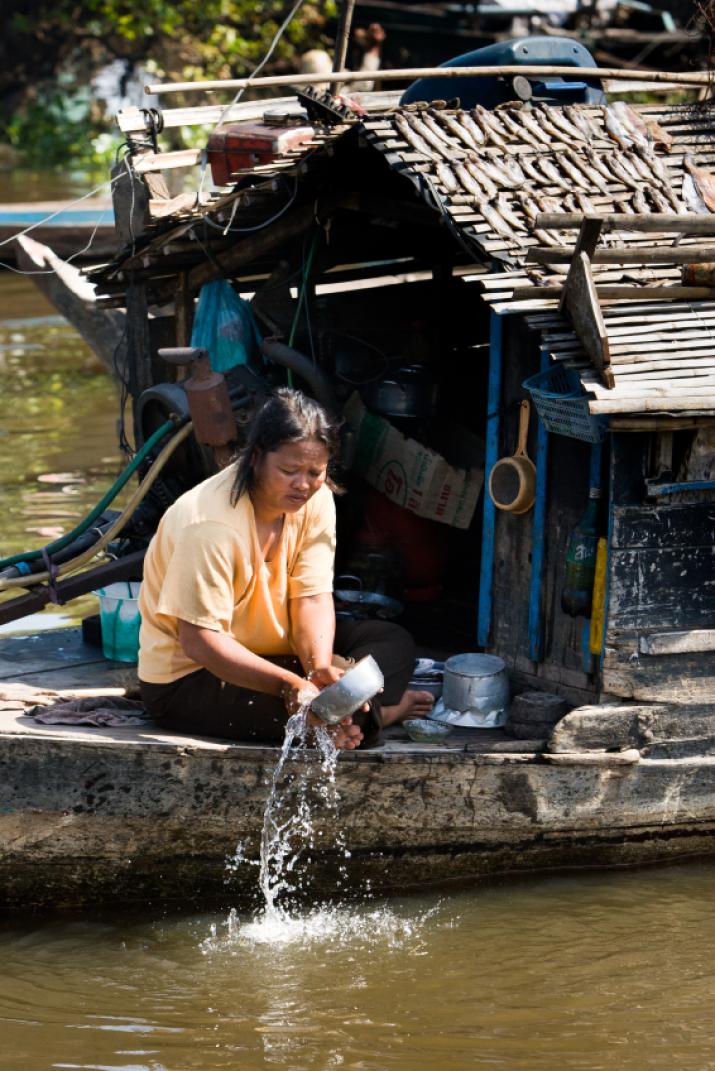
Access to clean water is a major health challenge in rural Cambodia.
Published April 26, 2011, last updated on March 6, 2013 under Research News
DGHI has awarded a $50,000 pilot grant to Marc Jeuland for a global environmental health project that focuses on water treatment in Southeast Asia. Co-investigators on the project include other DGHI faculty members John Crump, Daniel Westreich and Joseph Brown of the London School of Hygiene and Tropical Medicine.
Jeuland, assistant professor in public policy and global health, is lead investigator on the study that measures preference tradeoffs associated with technologies for point-of-use (POU) drinking water treatment, and the linkages between usage and health outcomes in Cambodia. Economic cost-benefit analyses suggest that POU treatment of drinking water can provide large health and welfare gains to households in developing countries. The research will accompany a detailed health impacts study on the effectiveness of disinfection technologies aimed at reducing disease incidence in rural communities that have unreliable water supplies.
Southeast Asia is a relevant location for this work because households have a known aversion to chlorinated water, which has been shown to affect the reliability of piped water systems by reducing community support for water treatment. Households may be unwilling to treat drinking water with chlorine because of its taste or odor, or people may find that bulky filters occupy precious space in the household. There may also be resistance to rigid treatment regimes that constrain beneficiaries’ ability to use water as they please.
Findings from this research will be applied in current POU marketing programs in Cambodia and will be used to design a potentially more effective, multi-year, randomized-controlled trial of an innovative disinfection technology.
The DGHI pilot project is an extension of the Institute’s signature research initiative focused on global environmental health, which encourages interdisciplinary research to tackle the complex biological, social, behavioral and economic aspects of global environmental health.

